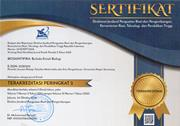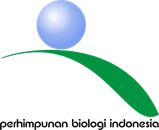Science Web-Module Integrated with Tannery Waste as Local Potential to Improve Students’ Problem Solving
(1) Universitas Negeri Yogyakarta
(2) Universitas Negeri Yogyakarta
Abstract
Problem solving skills are very important skill students must owned. The low score of students’ problem solving skills becomes a serious problem in the 21st century teaching and learning. The development of science web-based module integrated with tannery waste as local potential became a research that must be done. This research examined the appropriateness and the effectiveness of a science web-based module integrated with tannery waste as local potential in improving students’ problem solving skills. The Four-D research and development model was employed, consisting of define, design, develop, and disseminate. This research was conducted in the form of pretest posttest control group design. The appropriateness analysis conducted by content expert, teaching media expert, and science teacher indicating that the product was categorized very good. The effectiveness of the learning was tested using the independent sample t test with sig. value set at 0.000. The test showed that the science teaching done using the science web-based module was effective in improving students’ problem solving skills in SMP Negeri 1 Wungu. The product resulted from this study is expected to overcome the teaching and learning problems associated with the low score of students' problem-solving skills. Moreover, it can provide a real experience and independence to students in using the science web-based module to study.
Keywords
Full Text:
PDFReferences
Aji, S., Hudha, M. N., & Rismawati, A. (2017). Pengembangan Modul Pembelajaran Fisika Berbasis Problem Based Learning untuk Meningkatkan Kemampuan Pemecahan Masalah Fisika. Science Education Journal, 1(1), 36-51.
Ambarwati, M. (2019). Efektivitas Media Pembelajaran Berbasis Web Game untuk Meningkatkan Kemampuan Pemecahan Masalah pada Pembelajaran Matematika SD. Mimbar PGSD Undiksha, 7(2), 65-71.
Argaw, A. S., Haile, B. B., Ayalew, B. T., & Kuma, S. G. (2017). The Effect of Problem Based Learning (PBL) Instruction on Students’ Motivation and Problem Solving Skills of Physics. EURASIA Journal of Mathematics Science and Technology Education, 13(3), 857-871.
Arpan, P., Aunurrahman, & Fadillah. (2018). The Development of Science Learning Module With Problem Solving Method. Journal of Education Teaching and Learning, 3(2), 195-205.
Asyhari, A. & Diani, R. (2017). Pembelajaran Fisika Berbasis Web Enhanced Course: Mengembangkan Web-Logs Pembelajaran Fisika Dasar I. Jurnal Inovasi Teknologi Pendidikan, 4(1), 13-25.
Cahyaningtyas, R. N., Wilujeng, I., & Suryadarma, I. G. P. (2017). The Effect of Science Learning Based on an Integrated Scientific Approach to Local Potential on The Science Process Skill of The Student. Unnes Science Education Journal, 6(2), 1601-1605.
Diani, R., Yuberti, Y., & Syarlisjiswan, M. R. (2018). Web-enhanced course based on problem-based learning (PBL): Development of interactive learning media for basic physics II. Jurnal Ilmiah Pendidikan Fisika Al-Biruni, 7(1), 105-116.
Doyan, I. & Sukmantara, I. K. Y. (2014). Pengembangan Web Intranet Fisika untuk Meningkatkan Penguasaan Konsep dan Kemampuan Pemecahan Masalah Siswa SMK. Jurnal Pendidikan Fisika Indonesia, 10(2), 117-127.
Dwiyanto, A. I. Wilujeng, Z. K. Prasetyo, I G.P. Suryadarma. (2017). The Development of Science Domain Based Learning Tool which is Integrated with Local Wisdom to Improve Science Process Skill and Scientific Attitude. Jurnal Pendidikan IPA Indonesia, 6(1), 23-31.
Hake, R, R. (1999). Analyzing Change/Gain Scores. Woodland Hills : Dept of Physics, Indiana University.
Handayani, D., & Sopandi, W. (2015). Penggunaan Model Problem Based Learning untuk Meningkatkan Kemampuan Memecahkan Masalah dan Sikap peduli Lingkungan Peserta Didik. Eduhumaniora. Jurnal Pendidikan Dasar, 7(2), 105-114.
Hasanah, I., Wahyuni, S., & Bachtiar, R. W. (2016). Pengembangan Modul Mitigasi Bencana Berbasis Potensi Lokal yang Terintegrasi dalam Pelajaran IPA di SMP. Jurnal Pembelajaran Fisika, 5(3), 226-234.
Herawati. (2016). Pengembangan Modul Keanekaragaman Aves sebagai Sumber Belajar Biologi. Jurnal Lentera Pendidikan LPPM UM Metro, 1(1), 83-90.
Innatesari, D. K., Setiawan, B., & Sudibyo, E. (2015). Integrasi Kearifan Lokal pada Tema Gunung Kelud terhadap Kemampuan Literasi Sains Siswa. Dalam: Prosiding Seminar Nasional Fisika dan Pembelajarannya. Malang, Agustus 2015. Universitas Negeri Malang.
Irmawati, F., Oktaviana, I., & Rahayu, L. (2016). Pengembangan Bahan Ajar Pengetahuan Lingkungan Berbasis Web untuk Meningkatkan Motivasi Mahasiswa IKIP Budi Utomo Malang. Jurnal Florea, 3(1), 12-20.
Maharani, D.W. & N.R. Dewi. (2015). The Implementation of Science Inquiry Based Website Oriented By Cultural Deviance Solution To Instill Students Character and Independence. Jurnal Pendidikan IPA Indonesia, 4(1), 25-30.
Mardapi, D. (2008). Teknik Penyusunan Instrumen Tes Dan Non Tes. Yogyakarta: Mitra Cendikia Press.
Mukhopadhyay, R. (2013). Problem Solving In Science Learning - Some Important Considerations of a Teacher. Journal of Humanities and Social Science, 8(6), 21-25.
Murti, R. S., Purwanti, C. M. H., & Suyatini. (2013). Adsorpsi Amonia dari Limbah Cair Industri Penyamakan Kulit Menggunakan Abu Terbang Bagas. e-journal Kementrian Perindustrian, 29(2), 85-90.
Octaria, D., Zulkardi, & Somakim. (2013). Pengembangan Website Bahan Ajar Turunan Untuk Meningkatkan Minat Belajar Peserta Didik Development of Derived Website Instructional Material To Improve Students ’ Learning Interests. Jurnal Kependidikan, 43(2), 107–115.
Oktaviani, L., & Tari, N. (2018). Penerapan Model Pembelajaran Berbasis Masalah untuk Meningkatkan Kemampuan Pemecahan Masalah IPA pada Siswa Kelas VI SD NO 5 Jineng Daalem. Jurnal Ilmu Pendidikan, 16(1), 10-15.
Pawiroharsono, S. (2008). Penerapan Enzim untuk Penyamakan Kulit Ramah Lingkungan. Jurnal Teknologi Lingkungan, 9(1), 51-58.
Schunk, D.H., Meece, J.L., & Pintrich, P.R. (2015). Motivation in Education: theory, research, and applications. Essex: Pearson Education Limited.
Seyhan, H. G. (2015). The Effects of Problem Solving Applications on The Development of Science Process Skills, Logical Thinking Skills and Perception on Problem Solving Ability in The Science Laboratory. Journal Asia-Pacific Forum on Science Learning and Teaching, 16(2), 1-31.
Shabrina, A. dan Diani, R. (2019). Pengembangan Media Pembelajaran Fisika Berbasis Web Enhanced Course dengan Model Inkuiri Terbimbing. Indonesian Journal of Science and Mathematics Education, 2(1), 9-26.
Situmorang, A. S. (2016). Model Pembelajaran E-Learning Berbasis Web Terhadap Kemampuan Pemecahan Masalah Mahasiswa Prodi Pendidikan Matematika FKIP Universitas HKBP Nommensen T.A 2015/2016. Jurnal Suluh Pendidikan FKIP-UHN, 3(1).
Sudarwati, I. S. Khanafiyah, Sugiyanto. (2017). Online-Course Development via Discussion-Forum on The Students of Physics Education Universitas Negeri Semarang. Jurnal Pendidikan Fisika Indonesia, 13(1), 9-18.
Sugiyono. (2011). Metodologi Penelitian Kuantitatif, Kualitatif, dan R&D. Bandung : Alpabeta.
Sumiantari, N. L. E., Suardana, I. N., & Selamet, K. (2019). Pengaruh Model Problem Based Learning Terhadap Kemampuan Pemecahan Masalah IPA Siswa Kelas VIII SMP. Jurnal Pendidikan dan Pembelajaran Sains Indonesia, 2(1) : 12-22.
Suparno, O., Covington, A. D., & Evans, C. S. (2010). Teknologi Baru Penyamakan Kulit Ramah Lingkungan: Penyamakan Kombinasi Menggunakan Penyamak Nabati, Naftol dan Oksazolidin. Jurnal Teknologi Industri Pertanian, 18(2), 79-84.
Susilo, A. B. (2012). Pengembangan Model Pembelajaran IPA Berbasis Masalah untuk Meningkatkan Motivasi Belajar dan Berpikir Kritis Siswa SMP. Journal of Primary Educational, 1(1), 12-20.
Stanojević, D., Cenić, D., & Cenić, S. (2018). Application of Computers in Modernization of Teaching Science. IJCRSEE (International Journal of Cognitive Research in Science, Engineering, and Education), 6(2), 89-106.
Syafii, W. & Yasin, R. M. (2013). Problem Solving Skills and Learning Achievements through Problem-Based Module in teaching and learning Biology in High School. Journal Asian Social Science, 9(12), 213-220.
Taufik, M. (2014). Pengaruh Pendekatan Open Ended terhadap Motivasi Belajar dan Kemampuan Pemecahan Masalah Matematis Siswa SMAN 5 Mataram. Jurnal Agrisains, 5(1), 58-86.
Thiagarajan, Semmel & Semmel. (1974). Instructional Development for Training Teachers of Exceptional Children. Minneapolis, Minnesota: Leadership Training Institute/Special Education, University of Minnesota.
Wachrodin. (2017). Peningkatan Kemampuan Pemecahan Masalah dan Keaktifan Siswa Melalui Model Problem Based Learning (PBL) dengan Penugasan Berstruktur. Jurnal Penelitian Pendidikan, 34(1), 85-94.
Wahyulis, N. C., Ulfin, I., & Harmami. (2014). Optimasi Tegangan pada Proses Elektrokoagulasi Penurunan Kadar Kromium dari Filtrat Hasil Hidrolisis Limbah Padat Penyamakan Kulit. Jurnal Sains dan Seni ITS, 3(2), 2337-3520.
Wahyuni, S., Indrawati, I., Sudarti, S., & Suana, W. (2017). Developing Science Process Skills and Problem Solving Abilities Based on Outdoor Learning in Junior High School, Jurnal Pendidikan IPA Indonesia, 6(1): 165-169.
Yulianti, D. (2016). Problem-Based Learning Model Used to Scientific Approach Based Worksheet for Physics to Develop Senior High School Student Characters. Proceedings of The 3rd International Confecence on Mathematics, Science and Education, Semarang Indonesia, 824, 011001.
Refbacks
- There are currently no refbacks.

This work is licensed under a Creative Commons Attribution 4.0 International License.


